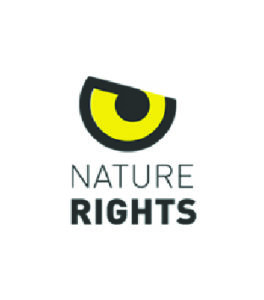A European Campaign in defense of aquatic ecosystems
to promote rights of Nature and foster legal changes.
An initiative of the European Hub of the Global Alliance for the rights of Nature.
RIGHTS 4 WATER IN EUROPE
Navigate this map and find more about the cases presented in the European Tribunal in Defense of Aquatic Ecosystems and more…
ABOUT THIS CAMPAIGN
The European Environment Agency (EEA) states a worrying balance of water quality in the European Union (EU). Only 40% of all surface waters are in ‘good ecological state’. Aquatic ecosystems remain victims of pollution, dams and over-exploitation which “still represent major threats to their long-term health”, warns the EEA.
Around the world, legal revolutions are taking place to find systemic solutions to the degradation of the water cycle, thanks to the creation of new legal rules to protect the link that unites us with the Living. The Whanganui River in New Zealand, the Atrato River in Colombia, the Klamath River in the United States… Many aquatic ecosystems benefit from the recognition of their rights throughout the world. Thus, the Rights of Nature have been mobilized to repair ecosystems, to preserve bodies of water endangered by human exploitation but also to respect ancestral traditions.
In order to raise awareness amongst the general public and public authorities about the protection of aquatic ecosystems through the Rights of Nature doctrine, the European Hub will lead a global campaign. This campaign will bring together citizens and NGOs through the creation of a European mobilization platform calling for the recognition of the Rights of Aquatic Ecosystems.
OUR GOAL IS TO OBTAIN CONCRETE VICTORIES FOR THE RECOGNITION OF THE RIGHTS OF AQUATIC SYSTEMS IN EUROPE.
JOIN THE CAMPAIGN, TAKE ACTION
DEFEND AND PROTECT THE RIGHTS OF AQUATIC ECOSYSTEMS
Faced with the alarming state of aquatic ecosystems in Europe, the European hub of the Global Alliance for the Rights of Nature (GARN) asks the European Union, as well as its member states, to commit themselves to the recognition of the Rights of Aquatic Ecosystems and requests the recognition of planetary boundaries as a binding norm in the guiding principles of European law.
Glaciers, lakes, rivers, oceans – the water cycle is also part of life. It is thanks to the health of Aquatic Ecosystems that the people of Europe have been able to live, prosper, travel, and come together. Whether we were born or live in the Alps or along the Danube, on the shores of Lake Geneva or in the Mediterranean, an important part of our identity and our culture is linked to these natural entities.
However, the state of aquatic ecosystems in Europe is alarming, since it is being threatened by climate change, pollution, dams and over-exploitation of water. The European Environment Agency (EEA) draws up a concerning assessment of the quality of water in the European Union (EU). According to its latest report, published in July 2018, only 40% of surface water is in “good ecological condition”.
Human activities are out of step with natural laws and exceed the biological limits of our planet. Human pressures exerted on the natural cycles of the living world represent a major threat to the protection of Aquatic Ecosystems.
Around the world, legal revolutions are taking place to find systematic solutions to the degradation of the natural environment with the creation of new laws to protect the link that unites us with the living community. All have a common objective: the recognition of the Rights of Nature, and in particular, those of Aquatic Ecosystems.
In New Zealand, the Parliament recognized in 2017 the legal personhood of the Whanganui River, which now has two guardians – one appointed by the Maori community and one by the government. In Colombia, the Supreme Court, in a historic 2018 decision, recognized the rights of the Atrato River to protect it from the ravages of mining. Justice ordered the creation of a commission of guardians from the local communities to work with the State on a policy of restoration and preservation of this ecosystem. These are just two emblematic examples among others.
The European Hub of the Global Alliance for the Rights of Nature, GARN Europe, bringing together organizations and personalities committed to the defense and protection of Aquatic Ecosystems, intends to bring forward new proposals in favor of an in-depth overhaul of the legal tools for better protection of the water cycle. GARN Europe and its members want to provide a solution based on a set of rules recognizing and protecting, by virtue of their intrinsic value, natural entities and ecosystems as interdependent members of the indivisible community of life.
Aware that our actions have consequences, not only on ecosystems, but also on our own future and that of future generations, we collaborate to provide a new common legal framework in harmony with living things. This European convergence is the expression of a historic movement in favor of adapting legal standards in the face of the destruction of living conditions on Earth.
GARN Europe asks the European Union, as well as its member states, to commit themselves to the recognition of the Rights of Aquatic Ecosystems and the strengthening of citizens’ rights, in order to take legal action to defend Nature. GARN Europe also requests the recognition of planetary boundaries as a binding norm in the guiding principles of European law. To complement this, GARN Europe suggests the creation of a european authority to monitor and guarantee the protection of the biological balance of our common territory. Finally, GARN Europe calls to recognize the crime of ecocide to strengthen the Directive 2004/35/EC on environmental liability and to prevent and repair damage done to the environment.
SIGN THE PETITION, AND TAKE ACTION FOR THE RIGHTS OF NATURE
LEARN MORE
``RIGHTS FOR AQUATIC ECOSYSTEMS``
WILL BE PROMOTED WITH A EUROPEAN RIGHTS OF NATURE TRIBUNAL
A Rights of Nature Tribunal during UICN Side Event @ Marseille 2021
TRIBUNAL CASES
Various Organizations within the European Hub united to lead a European campaign for the recognition of the Rights of Aquatic systems. and the organization of a Tribunal for the Rights of Nature during the IUCN World Congress.
These actions intend to advocate for the recognition of the Rights of Nature at national and regional levels, as an innovative legal framework to prevent and mitigate the consequences of exceeding global limits, to judge and punish environmental crimes, and to restore a harmonious relationship between humans and Mother Earth.
ORGANIZERS
Within the European Hub, various organizations united to lead a European campaign for the recognition of the Rights of Aquatic systems and the creation of a Tribunal for the Rights of Nature during the IUCN World Congress.
These organizations intend to advocate for the recognition of the Rights of Nature at national and regional levels, as an innovative legal framework to prevent and mitigate the consequences of exceeding global limits, to judge and punish environmental crimes, and to restore a harmonious relationship between humans and Mother Earth.





